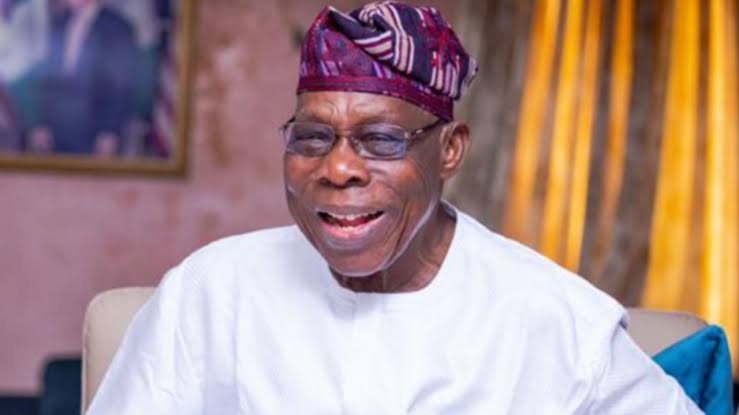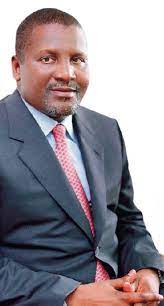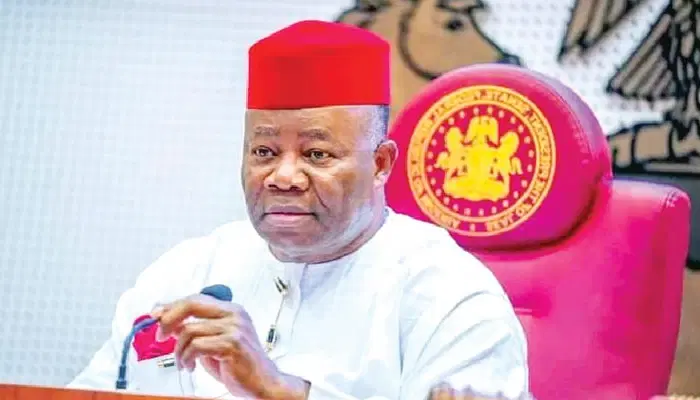African Leaders Unite: Urgent Call to End Abject Poverty in Africa
In a powerful display of unity and resolve, former Nigerian President Olusegun Obasanjo, Osun State Governor Ademola Adeleke, and the Ooni of Ife, Adeyeye Enitan Ogunwusi, have joined forces to demand an immediate end to abject poverty across the African continent. Their impassioned pleas, delivered during a leadership lecture hosted by media mogul Dele Momodu in Ibadan, Oyo State, highlight the urgent need for strategic action, drawing inspiration from global success stories and emphasizing the roles of education, leadership, and patriotism.
Obasanjo’s Blueprint for Poverty Eradication
At the forefront of the discussion was Chief Olusegun Obasanjo, who delivered a keynote address titled “How to End Hunger and Poverty in Africa.” Obasanjo minced no words in challenging Nigeria’s status quo, arguing that the country has no excuse for allowing poverty to persist. He pointed to China’s remarkable achievement of lifting 700 million people out of poverty as a benchmark, asserting that Nigeria could achieve similar results with the right approach.
“Before we talk about food, security is key,” Obasanjo emphasized, underscoring that a stable environment is the foundation for any anti-poverty efforts. He went on to stress the pivotal role of education, describing it as an indispensable tool for breaking the cycle of poverty. “Where there’s no education, invariably, there will be poverty,” he stated, urging African nations to prioritize universal access to quality education to ensure no child is left behind.
Leadership emerged as a central theme in Obasanjo’s address. He argued that effective leaders must embody “communality”—a sense of shared responsibility and ethical governance. “Leadership is the greatest ingredient for ending poverty. There’s no human endeavour that does not thrive on leadership,” he said. To drive home his point, Obasanjo called for integrity, discipline, and good governance as non-negotiable pillars. “Nigeria can eliminate hunger and poverty with integrity, discipline, and good governance. We can do it if China can lift 700 million people out of poverty,” he declared.
The former president warned of dire consequences if action is not taken swiftly. “If we don’t take responsibility, we all sit on a gunpowder keg,” he cautioned, adding that Africa would continue to be viewed as unserious by the international community until poverty is decisively addressed. “Until we banish poverty in Africa, international communities will not recognize us as a serious continent.”
Calls for Patriotism and Collaboration
Echoing Obasanjo’s sentiments, the Ooni of Ife, Adeyeye Enitan Ogunwusi, congratulated the former president on his insightful submission and urged all Africans to embrace patriotism as a pathway to progress. In his remarks, the revered monarch emphasized the need for collective effort, from individuals to governments, to foster self-reliance and economic independence.
“If we want to break poverty in this country, we have to be patriotic in all ramifications. From the food we eat to the clothes we wear,” Ogunwusi said. He acknowledged that the journey might not be smooth at first but expressed optimism that sustained collaboration could position Africa as “the envy of the world.” His call serves as a reminder that ending poverty requires not just governmental action but a societal shift towards unity and self-sustainability.
Governor Adeleke’s Perspective on Governance and Development
Governor Ademola Adeleke of Osun State also contributed to the discourse, congratulating Dele Momodu on establishing his leadership center in Ibadan. Adeleke highlighted a critical barrier to progress: the disconnect between political leaders and the people they serve. He criticized many officeholders for being “too big to reach out to guardians,” suggesting that arrogance and a lack of humility exacerbate poverty and inequality.
A key issue, according to Adeleke, is the erosion of moral values. “The problem we have is that people don’t have the fear of God,” he lamented, implying that ethical lapses among leaders hinder genuine development. To illustrate his commitment, Adeleke shared his efforts to transform Osun State, including inviting President Obasanjo to inspect ongoing projects. “I invited President Obasanjo twice to Osun State to see the rapid development I am bringing there. I am trying to build the Atlanta standard of spaghetti junction,” he explained, referencing ambitious infrastructure initiatives aimed at boosting economic growth and job creation.
A Collective Path Forward
The leadership lecture in Ibadan was more than a forum for discussion—it was a rallying cry for action. The insights from Obasanjo, Ogunwusi, and Adeleke converge on a shared vision: Africa must harness its resources, prioritize education and security, foster ethical leadership, and promote patriotism to eradicate poverty. As Obasanjo aptly put it, the continent’s future depends on taking responsibility now, lest it face escalating instability.
This event underscores the growing momentum for change across Africa, where leaders are increasingly drawing from successful models like China’s to address homegrown challenges. As the world watches, the onus is on African nations to translate these words into tangible policies that uplift the marginalized and build a prosperous future.
(This article is based on reports from Vanguard News.)




